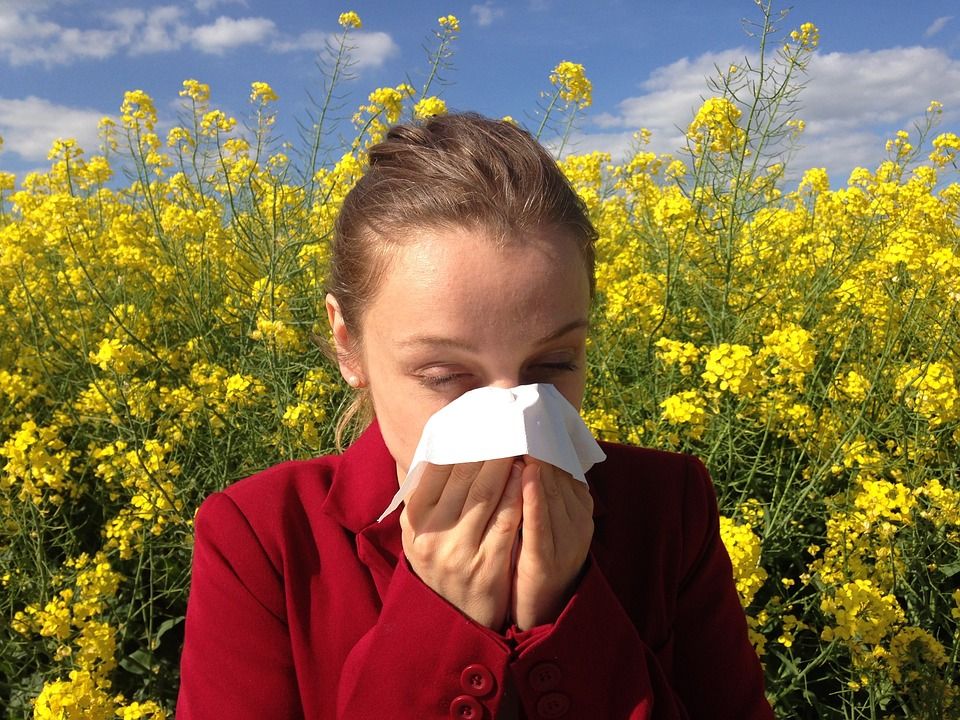Basking in the full blossom of spring, devouring a bag of peanuts and cuddling up to the cat for some evening ‘hygge’ – most of us take these things for granted, but millions of people around the world are unable to partake due to allergies.
Well, there’s some good news for those poor souls.
Engineers from Aarhus University have discovered a new antibody that could prevent allergic reactions in patients who come into contact with pollen, food allergies and animal allergies.
So far, the research has indicated that the antibody can be used to treat all forms of allergic reactions, and it could eventually have an immense impact on the treatment of allergies in the future.
“It’s a scientific breakthrough with great potential within the ongoing research of allergy medication,” Edzard Spillner, an associate professor at the Department for Engineering Science at Aarhus University who is one of the leading researchers behind the discovery, told Ingeniøren newspaper.
“Our goal is to improve the antibody and utilise its mechanisms. It will also be relevant to proceed with pre-clinical and clinical studies as the development of a new medical treatment will take many years.”
READ MORE: New study: Urban upbringing escalates allergy risk
Dabbing with 026 sdab
The discovery took place in co-operation with researchers from the biotech and molecular biology departments at Aarhus University, as well as two universities in Germany. The study has been published in the scientific journal Nature Communications.
The antibody, 026 sdab, has been known to researchers for some years now, but its properties and effect were stumbled upon by researchers in connection with an analysis of immunoglobulin E (IgE), which plays a central role in allergic reactions in humans.
When someone allergic encounters an antibody the body is sensitive to, the immune defence system reacts by producing allergy molecules in the form of immunoglobulin E, which is distributed around the bloodstream. They then attach to cells that release histamine, which then catalyses the allergic reaction.
Extremely stable
The antibody 026 sdab prevents that allergic reaction from occurring by binding to IgE, but it can also remove IgE from the allergic effector cells that are already impacted.
“That makes the new antibody far more effective that what is currently accessible on the market,” said Spillner.
Today, only one antibody is used to treat allergic reactions and it is administered via an injection. However, the new antibody has the potential to be administered through other types of treatment methods, such as inhalation, due to its extremely stable chemical structure.
Alcohol good for the brain
According to new research from the University of Copenhagen, consuming small amounts of alcohol could help clean the brain. The study, just published in the scientific journal Scientific Reports, revealed that limited alcohol can actually benefit the brain because it increases its ability to remove waste matter, including substances connected to Alzheimer’s Disease.
Danes launch Arctic satellite
A new Danish satellite has been launched into space in order to test the monitoring of ships and aircraft in the Arctic Region. The Ulloriaq satellite will orbit at about 540 km above the surface of Earth to see whether space technology can contribute to defence solutions in the region. The project, which is set to run until 2020, has been established by the Technical University of Denmark (DTU) in collaboration with the Defence Ministry and the company Gomspace.
Suicide significantly lower among the religious
The risk of suicide is considerably lower among religious Danes than the rest of the general public, according to a new study by the University of Southern Denmark (SDU). Christian Hvidt, a professor of existential and spiritual care at SDU, argues that a clear meaning of life and a sense of community are among the reasons for the disparity.
Millions of birds have vanished
Over the past 40 years almost 3 million birds have disappeared from the Danish countryside. Some 15 of 22 bird species associated with arable land areas have experienced declines in population, while just seven species have seen rises. The figures from the Danish Ornithological Society revealed that four out of every five lapwings, five out of every six partridges and over half of all the larks have vanished. Experts point to increased agricultural production as one of the key reasons for the bird decline.














